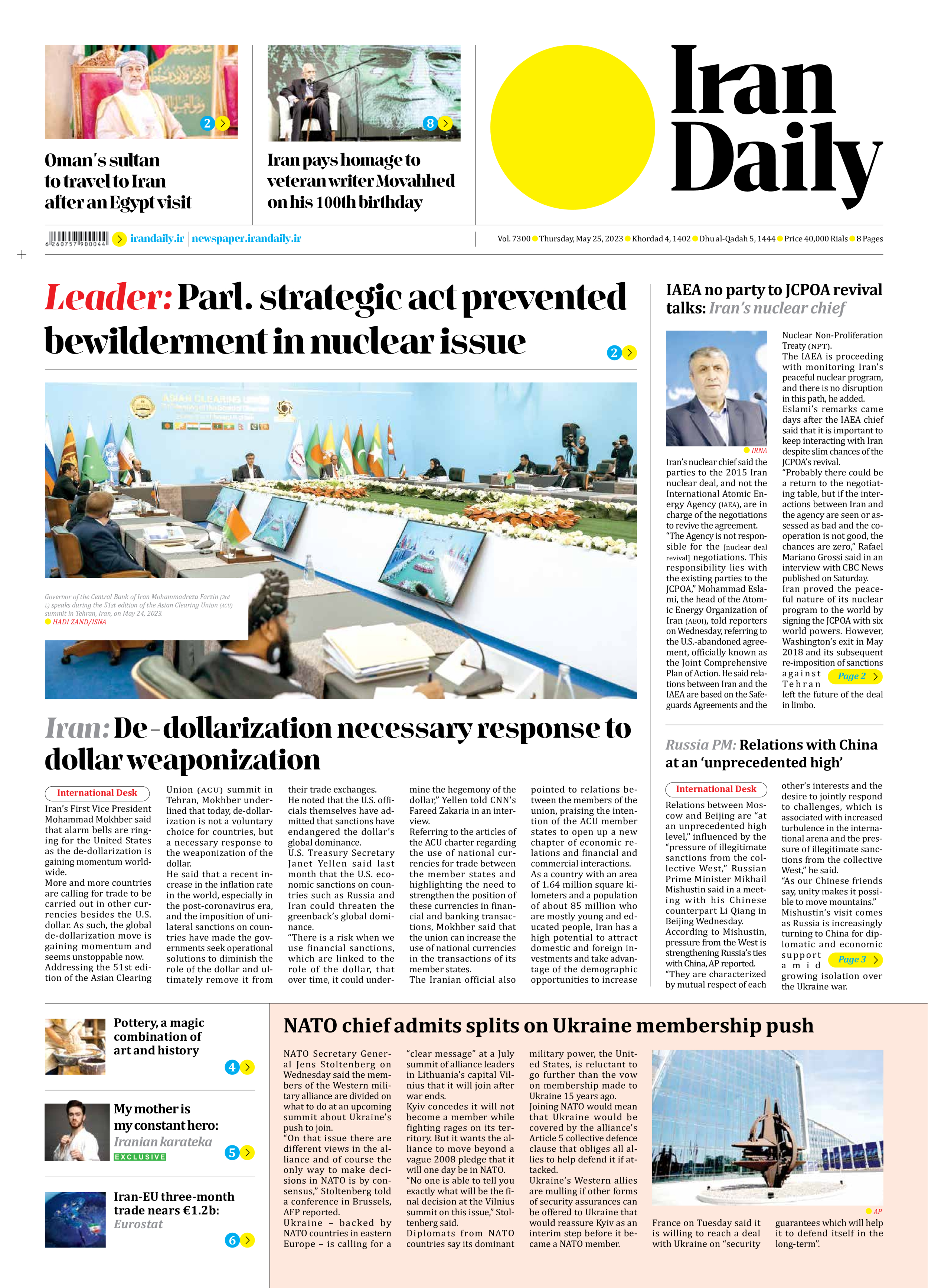
Russia PM: Relations with China at an ‘unprecedented high’
Relations between Moscow and Beijing are “at an unprecedented high level,” influenced by the “pressure of illegitimate sanctions from the collective West,” Russian Prime Minister Mikhail Mishustin said in a meeting with his Chinese counterpart Li Qiang in Beijing Wednesday.
According to Mishustin, pressure from the West is strengthening Russia’s ties with China, AP reported.
“They are characterized by mutual respect of each other’s interests and the desire to jointly respond to challenges, which is associated with increased turbulence in the international arena and the pressure of illegitimate sanctions from the collective West,” he said.
“As our Chinese friends say, unity makes it possible to move mountains.”
Mishustin’s visit comes as Russia is increasingly turning to China for diplomatic and economic support amid growing isolation over the Ukraine war.
China says it is a neutral party between Russia and Ukraine and wants to help broker an end to the conflict.
However, Beijing blames the West for provoking Moscow and has maintained strong diplomatic and trade ties with Russia in opposition to sanctions against it.
China’s special envoy met with Ukrainian President Volodymyr Zelenskyy and other government officials during talks in Kyiv this month.
The visit followed a phone call last month between the Ukrainian leader and his Chinese counterpart Xi Jinping that Zelenskyy described as “long and meaningful” and which marked the first known contact between the two since the Ukraine conflict began.
Beijing released a peace plan in February but Ukraine’s allies largely dismissed it, insisting that Putin must withdraw his forces.
During the visit, Mishustin also emphasized Russia’s role as a provider of oil and gas to China and their bonds formed as initial allies among communist nations.
“The peoples of Russia and China cherish their history, rich culture, and traditions. We support the further development of our culture, exchanges, and communication,” Mishustin said.
The memorandums of understanding signed during the talks between the two prime ministers included an agreement to deepen investment cooperation in trade services, a pact on the export of agricultural products to China, and another on sports cooperation, according to Reuters.
Russia’s energy shipments to China are projected to rise 40% this year, and the two countries are discussing technological equipment supplies to Russia, Interfax news agency reported.
“With sanctions against Russia providing new opportunities for China, it is hardly surprising that China would be happy to engage actively, if not proactively with Russia economically, as long as whatever relationships they forge will not trigger secondary sanctions against China,” said Steve Tsang, director of the School of Oriental and African Studies (SOAS) China Institute in
London.







